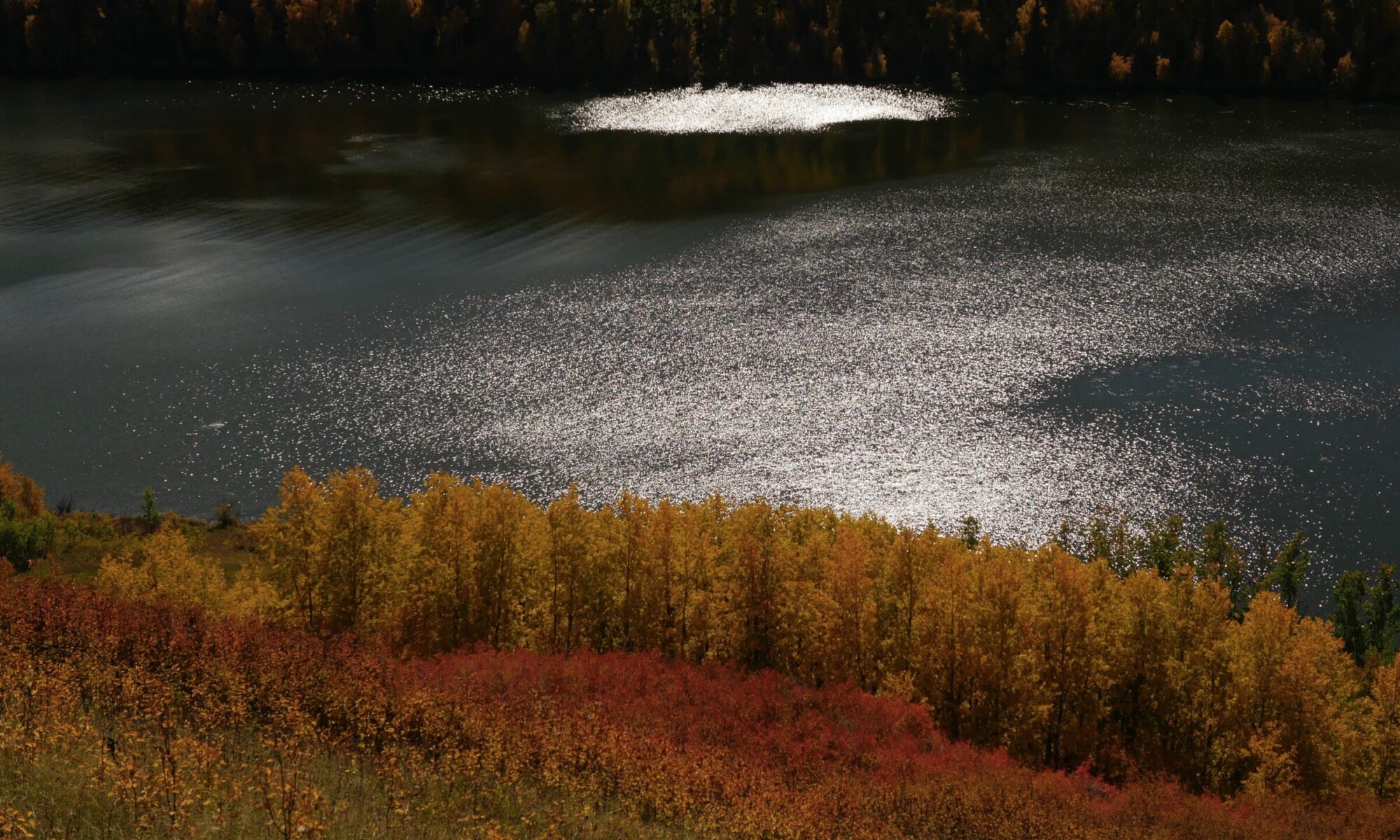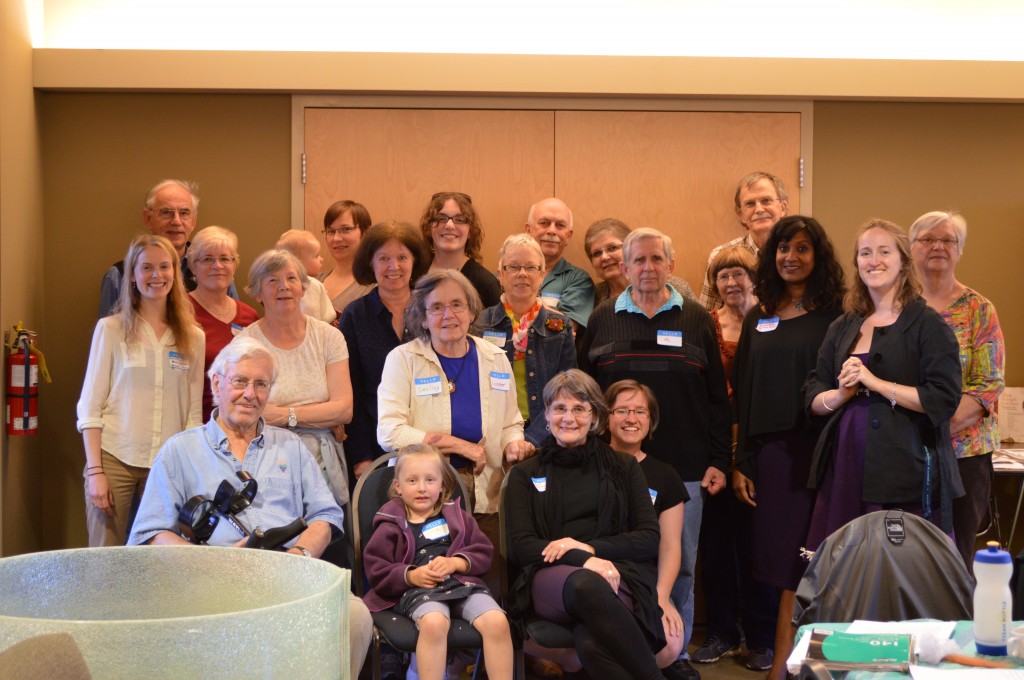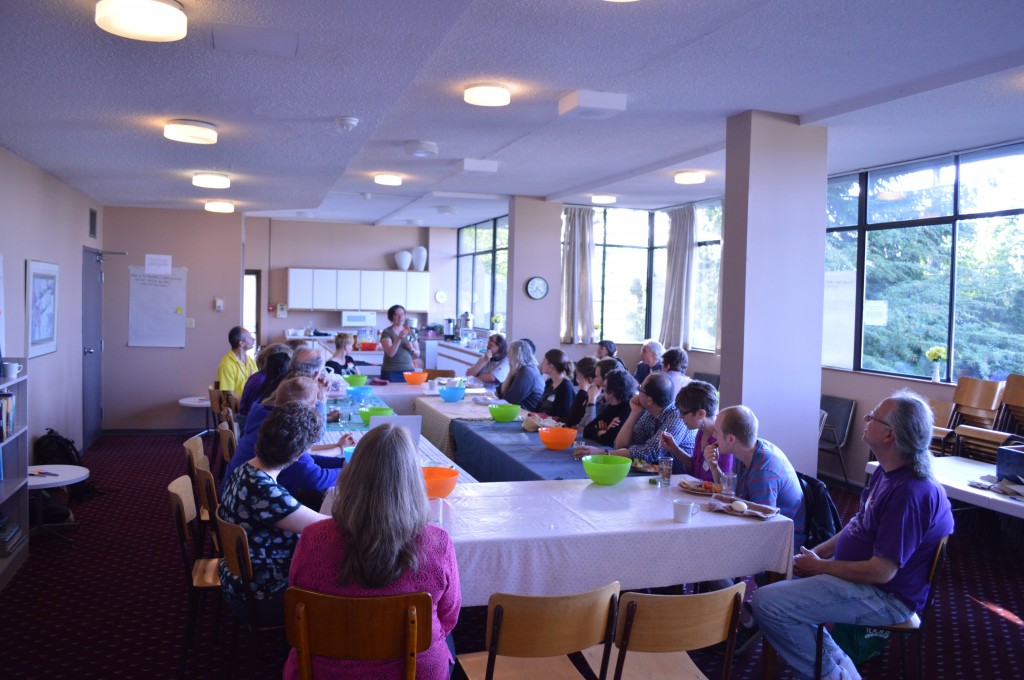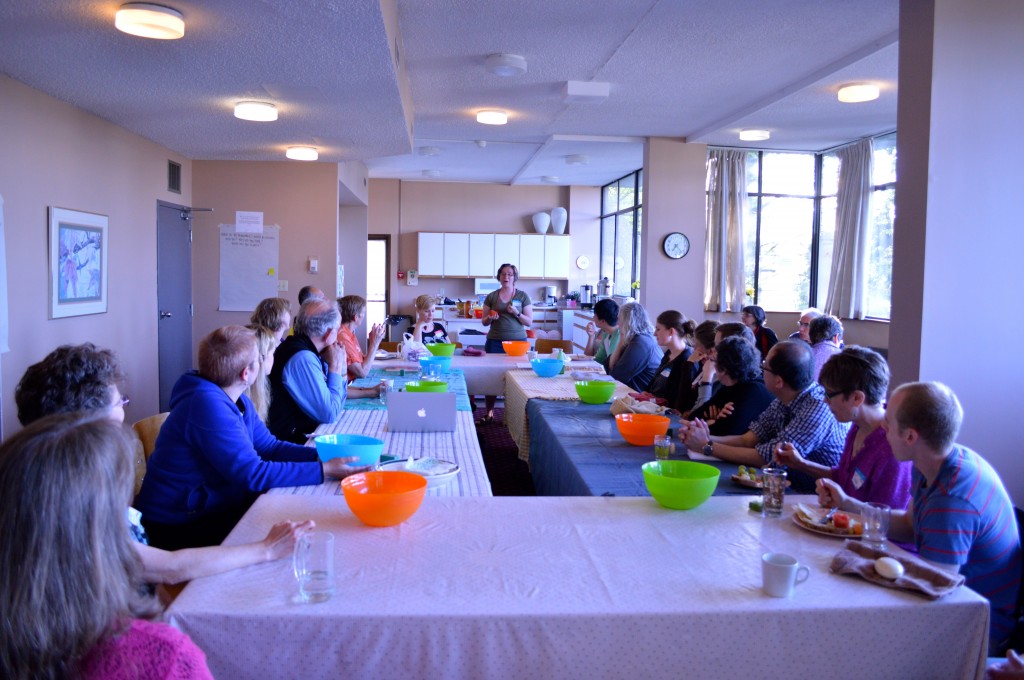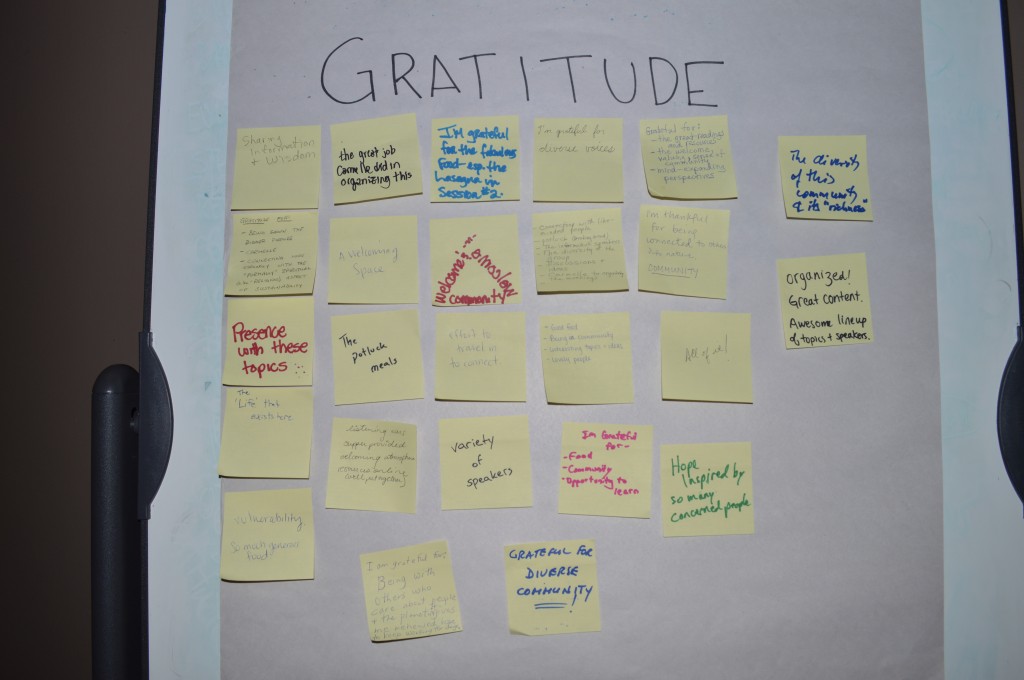What a diverse group of articles! I really felt that this week the articles we read all gave very different perspectives of ideas about both the Old Economy and the New Economy. While I cannot say that I agree with all of them, they were interesting reads nonetheless.
Starting with Byron Katie’s, “The World Doesn’t Need to be Saved,” I can understand where he is coming from, and yet struggle to get there myself. He essentially discusses taking your own thoughts captive and questioning them – particularly questioning fears you have. In the end, he insists you will find nothing to fear after all. I suppose the point of his article would be to give readers a bit of relief. It doesn’t take long after someone begins studying the environmental and economic crises that there is a huge amount of despair and hopelessness. It is true that we have gotten ourselves into a large conundrum, and there isn’t a simple answer. While I don’t think you can sit back and do nothing because the world doesn’t need saving, I think I can come away from this article encouraged to take a breath and tell myself it’s not all my responsibility to fix the environment.
David Suzuki’s article, “Measuring Progress with GDP is a Grave Mistake,” takes me back to the beginning of the crisis we are now in. In his article, he recognizes that something isn’t quite right. The way we measure success is actually an atrocity, causing us to only consider economics, and not social, spiritual, or any other aspect of wellbeing. There is not room for health, beauty, fixing things, and so forth, as they do not contribute to growth, and therefore do not increase GDP. In other words, Suzuki tells us that GDP has become our preoccupation, and any concern about “other aspects of life are seen as impediments.” While people, both from everyday as well as economists and social scientists, are looking for new ways to measure how well we are doing, there is a dire need to stop measuring progress with GDP and recognize there is more to holistic well being than economic security – if you can ever say that GDP indicates any kind of security to begin with.
Lastly, I read Wendell Berry’s, “Think Little.” For me, this article was far more on par with how I have understood the need for a New Economy. Berry walks us through the dangers of joining in a protest culture that refuses to take ownership of what they are protesting, and suggests that this is the time, in the height of the environmental crisis, where everyone must acknowledge their part in it. He also gives a course of action to take from there – unlike Katie’s suggestion to not try and save anything, or even Suzuki’s larger scale suggestion of a different measure for progress. Berry instead acknowledges how government and policy makers function, and that this can’t possibly be working, and suggests that we think little – start with ourselves, because that really is all we control – and do so as we “apply our minds directly and competently to the needs of the earth” (Berry 89). At that point, he goes on to say, “we will have begun to make fundamental and necessary changes in our minds” (Berry 89). It is as we engage ourselves that change will begin, and it cannot begin merely in our minds, but we must engage and use both application and thought. I think Berry puts this approach well when he suggests that there is, “necessary change of thinking and feeling,” but then goes on to say, “and suggests the necessary work” (Berry 86). Berry insists that it is not just a mind shift, but that it demands personal action (albeit little actions) that will truly change and transform the world we see today.
While all three articles deal with having a new perspective and mind set, I believe Berry’s combination of both a perspective and an active change will prove to be most effective, and I am now left with not only how I must change my thoughts, but how that will effect my actions.
Saving the World by Thinking Little: A Reflection on Articles by Wendell Berry, Byron Katie and David Suzuki
The first article for this week “The World Doesn’t Need to be Saved” engages an interesting conversation. It is reassuring to know that I don’t need to save the world. The author argues that it does not help the world for me to be in a constant mindset of anxiety over how humans are destroying the planet. Change can happen through a peaceful mind and positive feelings instead of negative stress. He says that the world changes itself as I change my mind. This is either my change of perspective on the world or perhaps the change of action that affects the world through my change of mindset. The ideas in this article are welcoming because the thought of trying to make a difference in the world can be overwhelming however the author leaves the reader more confused than with a strong sense of action. The focus of Byron Katie is nevertheless still positive and uplifting.
The next article “Measuring Progress with GDP is a Gross Mistake” by David Suzuki again brings up the question of values. What is the real measure of what is important in life. What is mind-blowing is that in our endless growth economy GDP has become like a god. It is morbid to think that the economy and people should benefit from the destruction of the environment or the loss of life. The article mentions natural disasters as a huge economic boost and especially other things like war add to the GDP while offering little return to society. When did money become more important than health, natural beauty and the wealth found in community? It is so sad that the worth of people and of a nation is determined by the economy. I would not be worth much because I have chosen to work mainly in non-profit or volunteer sectors. How much more life giving would it be to measure the value of life based on vibrant communities and healthy people? I can see the world in a brighter way when the most important thing is not money.
In his article “Think Little” Wendell Berry encourages us to do just that. Thinking little makes a cause personal, it involves action. Thinking little makes a cause personal, it makes one have to examine their own mentality and actions before getting other people on board with them. Our lives are rooted in the environment as it is the basis of our survival on earth and in order to sustain healthy living we must remove our ignorance through education and learn how to respect the land. One way that Berry suggests that we can care for the land is through gardening. As David Suzuki explained about GDP in the previous article growing your own food will not contribute to the economy however it is a transition to a new economy. Essentially through gardening we can become more sustainable as communities and less dependent on the global distribution of goods. Thinking little means thinking local where we act on the things that matter to us within our community. When we are connected locally to the community and to the land we have a personal interest in its health, sustainability and success.
Spirit of the Land Short Documentary
Hi folks, I am happy to say that after a couple of months of hard work, we were able to complete the Spirit of the Land Short Documentary. I invite you to view the film, and see a bit of what has been going on since the end of the Caring for All Creation Series in Vancouver and Victoria. With much talk of continuing the series, this film could act as a great tool to share ideas with new people who could join us in the new year!
I truly hope you enjoy,
~Alison
Call for Interviews
Hey everyone,
For those of you who have met me, you may remember that I am a film student here in Vancouver.
Recently I got the Green-light on my latest documentary project. My partner Adam and I are going to be making a documentary on Spirit of the Land. We are in the beginning stages, but here is where we need your help!
We would like to include folks such as yourselves in the film, for each of you carries a unique story, a unique experience. We would love to chat with as many people as possible. We have 10 days to shoot starting today. If you are at all interested we would love to hear from you! Please send me an email at alisonbortolon@gmail.com and we can discuss this further.
Below is the written proposal for the film.
Remember… All are welcome, and All are needed!
Looking forward to further conversations!
Alison & Adam
Alison Bortolon
t: 807 629 6603
e: alisonbortolon@gmail.com
Synopsis:
What if community and belonging was the answer to the social, political, environmental and economic ills of today. What if our external ecological crises – from climate change to economic inequity – were symptoms of a deeper spiritual and cultural need? And, what if this was due to disconnection from place, and all place holds?
A group of diverse people – of Indigenous, Immigrant and Settler story – are inspired by a vision of a Community Land Ethic. Through inner and outer efforts, this ever widening group of people strive to reveal and be responsible for the commonality within our diversities. It has begun and continues with individuals such as you and me.
Treatment:
“She was walking through the forest, filled with all kinds plants and trees, when a strong wind came rushing through. She could tell something wasn’t right, she could feel, the plants, they were upset. The plants began to cry out ‘Where are the people? Where are our friends? We miss their songs.’”
Takota Cohen reflects on this dream told to him by a friend. Every single plant in Indigenous culture is a relation. It once was that each plant had a song, and people would sing it when it was needed and before harvest. As Takota tells us how the plants were upset in his friends dream, he fights back his tears. The plants miss the connection they once had with humans; when the humans needed and loved them.
The instability of our climate is by now undeniable. The contamination of land for unfettered resource extraction is proceeding at an extreme scale and pace. The economic inequality between rich and poor is growing. We have exceeded the safe limit of carbon in the atmosphere. And yet we hear the mantra that ongoing and rapid ‘economic growth’ will save us.
In the pursuit of “progress” towards on a finite planet, not all can achieve this “good life.” Alas, we have created and uphold a world of opposition. Nation opposes nation and corporation opposes corporation. Farmer must compete with farmer, NGO with NGO, and Church with Temple. It is neighbour against neighbour. It is water against oil. It is relation against relation. And, in response to the knowledge that Our Earth as we know it is collapsing, so much of our energy, discourse and belief go into further opposing each other. Even in seeking to protect those we hold close, a separation-mindset only increases our alienation. Despite good intent, we cannot solve our problems with the same thinking that created our crises to begin with.
But what if it didn’t need to be this way: relation against relation? What if, within our diversities, we shared a commonality? What if we all care deeply? Perhaps today’s crises call us to something more difficult than fighting for something. Perhaps today’s crises are calling us to love something: our place, and all the lands, waters and communities place holds.
If disconnection is the root of our crises, then any act of re-connection is globally significant. It means that: the creation of a kinder future is every ordinary persons work, that connecting is the way to heal the suffering, and that each of us is agency. Today and tomorrow is up to each of us, together, and all our relations of the Natural World, because any one act of re-belonging is the creation of a kinder future.
Each day as we glimpse the increasing magnitude of global suffering, we ask despairingly, “where on earth do we begin?” Perhaps within our very question, is our answer: On Earth. Begin, present, on Earth. For when we are present, we come to know our place. When we know our place, we begin to fall in love with it. When we love it, we come to know how to care for it. And when we care for it, we re-belong.
Takota sits on the porch with much gratitude for the current rainstorm. He is seated on Grassroots Family Farm, an organic farm of his and his parents. His goal is to use this land to reconnect people with the land through their food. Takota has an awareness of an existing disconnection humans have with the natural world and views this as a fatal error. For him, if there is no connection to the land there is no reason to care for it, and therefore what happens to it. He himself feels a very special connection to his land, a physical one, for his placenta is buried under a tree on this land. Takota wipes a tear as he tells us that for the Seri people of Mexico, “where are you from?” literally translates to “where is your placenta buried?” Takota believes that humans need to reconnect, with each other, and with the land. He says that once you build a connection you begin to feel for it, and it becomes a part of you. This is where he has started, right back at his Family Farm where he was born and raised. Each day he cares for his animals, his pigs, his chickens, his cattle, his bees, his trees… his soil. As he cares for these things, he belongs to this place.
Carmelle Mohr takes a rest on her dock from planting trees with the family. She is at the place her family calls ‘the Farm’. Her mother and grandfather stumbled across this land in the 60’s. This is a place with which she has a deep kinship. The distant call of the redwing blackbird, the loon and the floundering of the nearby purple martins sing as Carmelle starts to narrate the story of spirit of the land.
We have become so disconnected – from each other, our lands, and within ourselves. And each day, suffering is increasing – around the world and around the corner.
If all these ills are symptoms of disconnection, this would mean then, that any act of re-connection is, truly, an act of peace-making. That it is not up to technological or ideological breakthroughs but, rather, the great, small acts of caring.
It starts here, now, with us, with place.
Our stories and opinions may be different, but we all share a common story: a commonplace. As our crises increase each day, the temptation may be to further oppose and blame each other in seeking to protect particular gifts of life. What if we could do so, and together?
Now is the time to recognize our selves in each other and our lands; the commonplace which makes us and to which we all belong. In this story, there are no antagonists. This is everyone’s story. It is my story. It is your story. It is our story. It is the story of place, and All place holds.
This is Spirit of the Land; it has begun and continues with individuals such as you and me. In this film you will meet individuals in Alberta and British Columbia that believe in this movement. They will go deeper into explaining the crisis and the disconnection that exists today, but most importantly, they will discuss what they are doing, how they are belonging, and how each and every act is a small piece that contributes to the greater whole.
Spirit of the Land is not a dramatized documentary. It is a film that hopes to reach each and every one of us in our global crises. It is a call to action and an illustration of how we can all create a better future, and to do so as our ordinary selves. Let the folks of Spirit of the Land take you in to their daily lives and show you where they have begun, and further, where you can begin.
Marketing and Distribution
Spirit of the Land is to be promoted and distributed online through various networks and community organizations involved in the movement.
The filmmaker intends this film to raise awareness and illustrate the vision that Spirit of the Land carries.
Filmmaker Biography
Alison Bortolon has been making documentaries for 3 years. Over the years she has watched the Spirit of the Land movement grow from her community in Camrose. She created a documentary on the initial theme of Responsibility for that Land which touched on the topic of Hydraulic Fracturing. From Responsibility for the land grew a project called AlbertaVoices, which was a series of documentaries documenting cases of landowners impacted by Hydraulic Fracturing. From here Spirit of the Land evolved where Alison attended community gatherings in Camrose, AB, Victoria and Vancouver, BC. Alison has watched Spirit of the Land grow from its early stages into a larger theme of creating a community land ethic and wishes to continue to document its story.
Fifty-one clergy send letter to premier and ministers about climate change
Moving Beyond Coal
An open letter from leaders of Faith-based groups in British Columbia
The Honorable Christy Clark, Premier of British Columbia
The Honorable Mary Polak, Minister of the Environment,
The Honorable Todd Stone, Minister of Transportation and Infrastructure
The Honorable Terry Lake, Minister of Health
Premier and Honorable Ministers,
We write as leaders of Christian, Jewish, Unitarian, Quaker, and Sikh traditions in British Columbia. We are concerned about the moral and environmental issues regarding the proposal to build a new coal transfer facility at Fraser Surrey Docks (FSD) that would expedite the shipment of up to 8 million tons of U.S. thermal coal through Surrey, the Fraser River, and Salish Sea to Texada Island. We are asking you to reconsider the recently approved permit for the augmentation of the Texada Island port facility that would enable the increased coal export, and to phase out all U.S. thermal coal exports from BC ports.
The end use of this coal is for electric power generation, primarily in China. The practice of burning coal is the source of most of the horrific air pollution problems in that country. Contributing to the increase in coal-related disability among the Chinese weighs heavily on our conscience. Coal is also the fossil fuel most directly linked to the rising CO2 emissions in China of the last 20 years.1 Our province has shown strong leadership in the past on commitments to reduce GHG emissions2 and our municipalities have robust plans to reduce carbon output. The traffic in coal is not compatible with those plans.
In our weekly sermons we encourage our congregations to adopt a sustainable lifestyle. Many of them are walking the talk, reducing their carbon footprint in their daily choices of what they buy and how they travel. Now our congregations are asking us to act as emissaries of their message to you, to embrace a shift in the way to do business. Therefore we will not stand idly by when we see local actions that will contribute to climate destabilization. We state emphatically that making money at the expense of the health and prosperity of the planet is wrong.
Our traditions teach us that human and non-human life is sacred and inter-connected. Our compassion compels us to act to prevent the suffering of human and non-human life on this miraculous planet. Although the amount of coal proposed for traffic through the FSD is a small fraction of the global coal use, this is the coal that you, the representatives of the BC electorate, can control. Approval of these permits means that you are complicit with a continued dependence on a dangerous fuel that is a relic of a time that is no more. Denying the permits would send a powerful message that BC is committed to being part of the solution to the climate crisis.
We ask you to consider both current and future generations of life on this planet as you make these decisions.
1CO2 Emissions from Fuel Combustion – Highlights 2013, International Energy Agency
2 Province of British Columbia, Climate Action Plan, 2008
Sincerely,
The Reverend Beth Hayward, Senior Minister, Canadian Memorial United Church, Vancouver
Rabbi David Mivasair, Rabbi Emeritus, Ahavat Olam Synagogue, Vancouver
The Reverend Dr. Dorothy Jeffery, Minister, St. Stephen’s United Church, East Delta
The Reverend Bruce Sanguin, Minister in the United Church of Canada, Vancouver, founder of Home
for Evolving Mystics
The Reverend Debra Thorne, Minister, Beacon Unitarian Church, New Westminister
The Reverend Phillip Hewett, Minister Emeritus, Unitarian Church of Vancouver
The Reverend Dr. Daniel Bogert-O’Brien, Minister, Colebrook United Church, Surrey
The Reverend Scott Swanson, Interim Minister, Crescent United Church, Surrey
The Reverend Dr. Stephen Atkinson, Minister, North Shore Unitarian Church, West Vancouver
The Reverend Samaya Oakley, Developmental Minister, First Unitarian Fellowship of Nanaimo,
Nanaimo, BC
The Reverend Karen E. May, Minister, Texada Island United Church, Van Anda, BC
Christopher F. Bernard, MDiv., Pastoral Care Chaplain/Spiritual Health Leader, Roman Catholic
Health Care, Vancouver
The Reverend Maxine Pirie, Order of Ministry, Powell River United Church, Powell River
The Reverend Peggy Jensen, Minister, St. George’s United Church, Courtenay
The Reverend Dr. Gary A. Gaudin, Minister, South Arm United Church, Richmond
The Reverend Janice Young, Minister, St. John’s United Church, Sechelt
The Reverend Bethan Theunissen, Minister, Trinity United Church and Heartwood Community Café,
Vancouver
Janette McIntosh, Organizer, Metro Vancouver KAIROS: Canadian Ecumenical Justice
Initiatives, Vancouver
Janet Gray, BC-Yukon KAIROS organization, Victoria
The Reverend Dr. Adela D. Torchia, Rector, Anglican Parish of St. David and St. Paul, Powell River
Henri Lock, United Chaplain, University of Victoria
The Reverend Dr. Allan Saunders, Minister, First Metropolitan United Church, Victoria
The Reverend Mark Green, Lead Minister, Cadboro Bay United Church, Victoria
The Reverend Julianne Kasmer, Chaplain, Our Place Society, Victoria
Ellen Pye, Clerk of Vancouver Monthly Meeting of the Religious Society of Friends (Quaker), Vancouver
The Reverend Emilie Teresa Smith, Parish Priest, St. Barnabas Anglican Church, New Westminster
The Reverend Dr. Margaret Cornish, Rector, St. Alban Anglican Church, Richmond
Sister Cecilia Hudec, Sisters of Charity, Richmond
Sister Gertrude A. Jocksch, Sisters of Charity and Programs in Earth Literacies, Richmond
The Reverend Dr. Victoria Marie, Pastor, Our Lady of Guadalupe Tonantzin Community Society, Vancouver
The Reverend Fr. John Tritschler, Holy Rosary Cathedral, Vancouver
The Reverend Patricia Dutcher-Walls, Vancouver School of Theology
The Reverend Rebecca Simpson, Minister, St. Paul’s Presbyterian Church, Mission
Mrs. Janet Eastwood, Leader of Children, Youth and Family Ministries, Haney Presbyterian Church, Maple Ridge
The Reverend Geof Jay, Moderator for the Presbytery of Westminster and Minister, St. Andrew’s- Newton Presbyterian Church, Surrey
The Reverend Laurie Deacon, Minister, St. Aidan’s Presbyterian Church, New Westminster
The Reverend Dr. Brian Fraser, Minister, Brentwood Presbyterian Church, Burnaby
The Reverend Dr. Glen Davis, Faculty member, Vancouver School of Theology, Vancouver
The Reverend Joyce Davis, President, Westminster Presbyterial
The Reverend Mary Fontaine, Executive Director, Hummingbird Ministries of the Presbytery of Westminster
The Reverend Dennis Howard, Minister, Langley Presbyterian Church, Langley
Dr. Sallie McFague, Distinguished Theologian in Residence, Vancouver School of Theology, Vancouver
The Reverend Brenda Nestegaard Paul, Pastor, Faith Lutheran Church, Powell River
The Reverend Ian Nestegaard-Paul, Priest, Anglican Parish of St. Bartholomew’s, Gibsons
Gian Singh, President of Gurdwara Dasmesh Darbar , Surrey
Giani Narinder Singh, Head Priest, Gurdwara Dukh Nivaran, Surrey
The Reverend Tim Dutcher-Walls, Chaplain, New Vista Society, Burnaby, and Faith & Society Committee, BC Synod (Lutheran)
The Reverend Dr. Gregory Mohr, Bishop, BC Synod, Evangelical Lutheran Church, New Westminster
The Reverend H. Paul Schmidt, Pastor, Retired. Evangelical Lutheran Church, Delta
The Reverend Tim Le Drew, Our Saviour Lutheran Church, Richmond
The Reverend Lori-Anne Boutin-Crawford, First Lutheran Church, Vancouver
Video- Extractivism to Giftism- Vancouver, April 15th
Photos from final gatherings
#care4creation on #ds106radio
Gatherings across the country–this Saturday
Friends,
In local communities across Canada this Saturday, May 10, folks of all ages and backgrounds will gather to affirm the good earth and the integrity of nature. And to work to find ways for us humans to be less destructive and more humble, respectful participants in the natural web of life. These gatherings are due to efforts of grassroots organizations across the country and local citizens. Come to affirm, celebrate, and work for a better way to access/use energy and share life on this planet!
See website: www.defendourclimate.ca Click onto “Find a rally” to locate an event in your community. And get your butt out there! 🙂
Thanks, folks.
Tim
Strangely Located
Hi, folks. Great series we’re in. Thank you to all organizers and participants!
Having lived for decades with the nomadic and “spiritually homeless” sensibility some of us from the Sixties generation inherited, I have a somewhat different take on location, place, land, etc. Here’s an article I wrote on “place” for a Buddhist journal twenty years ago. It’s still pretty much my outlook today, though I have now happily returned to live in my “navel of the earth” (Cascadia–Vancouver to Bay Area, then down to Big Sur).
But note, I do reference positively Native perspectives on place and that of poet, essayist and deep ecologist, Gary Snyder. Views very much in the spirit of Caring for All Creation.
Be well,
Tim
